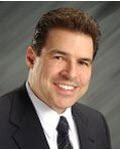The Role of the Sedation Dentist In Dental Care for Children

Conscious Sedation Dentistry
While many younger patients in the dental care office are cooperative and manageable without the need for sedative drugs, there are a significant number of children who cannot tolerate dental care without the use of these techniques.
For older, mildly apprehensive children, the use of oral conscious sedation may prove effective during dental care. Drugs such as chloral hydrate, Vistaril, Phenergan and Versed are frequently used either alone or in combinations selected by the sedation dentist for dental care.
Inhalation conscious sedation, using nitrous oxide, or laughing gas, is also highly effective in a mildly apprehensive older child who is older than six years.
In some instances, the use of a physical restraint (known as a Papoose Board or PediWrap) may be necessary to minimize excessive movement (which could be dangerous) during dental care treatment.
Naturally, many younger children are not mature enough to understand the need for their cooperation during dental care treatment. In this situation, the techniques described above have little chance for success. Deep sedation or general anesthesia may be required for dental care treatment to be successfully provided.
When this is necessary, the sedation dentist will employ a highly trained and certified dentist anesthesiologist, medical anesthesiologist, or, in some cases, nurse anesthetist, whose sole responsibility is to ensure the safety of the child while the dental care is being done.
Dentists trained to administer general anesthesia have received a minimum of two years of specialized advanced training and have been certified by their state Board of Dental Examiners.
Monitoring devices, some of which evaluate breathing, blood pressure and heart rate, will be employed by the sedation dentist to help ensure the safety of the procedure.
All aspects of the child's medical history, including any drugs he/she may be taking, should be disclosed to the dentist before any dental care.
It is suggested that the parent ask the following questions of their dentist prior to signing an informed consent granting permission for the administration of conscious sedation, deep sedation or general anesthesia to a child:
- Will the child require sedation or general anesthesia for his/her dental care treatment?
- Who will monitor the child while the sedation dentist works on his/her teeth?
- What kind of monitoring equipment do you use?
- Are you and your assistants trained in resuscitation?
- Will you continue to monitor the child after the procedure, until the drug has completely worn off?
Children's Dental Care Treatment
The administration of local anesthetics (commonly known as Novocain) is needed whenever potentially painful dental care procedures are performed (even during conscious sedation dentistry and general anesthesia).
The administration of local anesthetics to children by a trained sedation dentist is extremely safe and represents the ideal means of providing comfortable dental care treatment.
The following are some of the procedures the doctor might use to make this procedure more comfortable for the child:
- Place the child in a reclined position during the injection.
- Place a topical anesthetic (a gel or spray) on the child's gums where the injection is to be given. This should remain in contact with the tissues for at least one minute.
- Use of a distraction technique, such as pulling or shaking the child's lip as the needle is slowly inserted.
- Injecting the local anesthetic drug slowly. This is critical to a comfortable injection.
- Permitting the local anesthetic drug time to work. Most local anesthetics will become fully effective within approximately five minutes after their injection.
The duration of the numbness varies from drug to drug - some providing a short duration (two to three hours), with others remaining effective for up to twelve hours. The sedation dentist will select a drug for the child that is appropriate for the planned dental care procedure.
Since a child's tongue and/or lip may remain numb for several hours after the completion of their dental care treatment, the parent should carefully watch the child to prevent them from accidentally biting and injuring their lip or tongue during this period of time.
Properly administered, local anesthetics are safe and effective in almost 100% of younger patients. If a child is unable to tolerate the injection of the local anesthetic in their mouth, it may be necessary to use one of the techniques of conscious sedation, deep sedation or general anesthesia.
Local anesthetics can safely be administered by a trained sedation dentist to patients receiving sedation or general anesthesia during their dentistry visit.
By Stanley F. Malamed, DDS

+Jim Du Molin is a leading Internet search expert helping individuals and families connect with the right dentist in their area. Visit his author page.
Dentistry and Medicine - A Partnership for Your Oral Health

A world of opportunities for dental health awaits us in the new dentistry. Using the old dentistry, dental care professionals did their best to provide a high quality of service given the state of knowledge and technology at that time.
Through advancements in treatment, research, and the desire of the dental care profession to do more and do it better, the new dentistry has emerged giving you a better smile. It is based on a foundation with specific characteristics that are of great benefit to us as consumers.
- Efficiency: Your time and your resources are valuable to you, and your dentist recognizes this. New dentistry treatment techniques and methods have considerably reduced the amount of time that the dental care now takes. The return on your investment in dental health is excellent.
- Comfort: Not only are the dental chairs and the dentistry office environment more comfortable and pleasant, improvements in the use of local anesthetics and new equipment provide more comfort than ever before.
- Collaboration: The dental relationship is now based on the value that you can derive from your dentistry team and what you want for your dental future rather than just on the techniques and procedures your dentist can do. Through dental continuing education, your dentist has the skills and knowledge to help you make decisions for your dental health in a positive and informed way.
- Predictability: New materials and advances in treatment provide you with opportunities to maintain your dental health throughout your life. With the innovative cosmetic and specialized dentistry approaches to reclaiming teeth that formally would be lost, your dentistry professional can help create and maintain teeth and gums. Predictable treatment, effective prevention methods, and the longevity of treatment are now part of any treatment plan.
- Thoroughness: Advances in assessment and diagnosis now enable dentists to make thorough evaluations of your overall dental and oral health. The outcome is a plan for your health that will give you peace of mind, knowing you can have a well-informed dentistry plan in place.
- Prevention: This characteristic of the new dentistry has received much publicity in recent years. It has been proven over and over again that there are several measures that you can take as a consumer of dental care to create and maintain your dental health in collaboration with your dental team. It bears repeating again -- flossing and brushing combined with regular dental hygiene checks are your greatest allies in maintaining your teeth and a bright smile.
- Precision: The new dentistry utilizes instruments and technologies that are far advanced from what was available even 15 years ago. Both general dentists and specialists have access to technologies that provide precision in diagnosis and treatment. The value for you is higher quality care.
The dental profession has established a strong foundation for a pleasant smile and a healthy dental future for all of us. Dentistry improvements are continuously being made to this foundation. You can choose to avail yourself of these improvements by asking your dentist, "What can help me to maintain my dental health?" They have the knowledge and the desire to help you.
By Brian DesRoches, PhD

+Jim Du Molin is a leading Internet search expert helping individuals and families connect with the right dentist in their area. Visit his author page.







